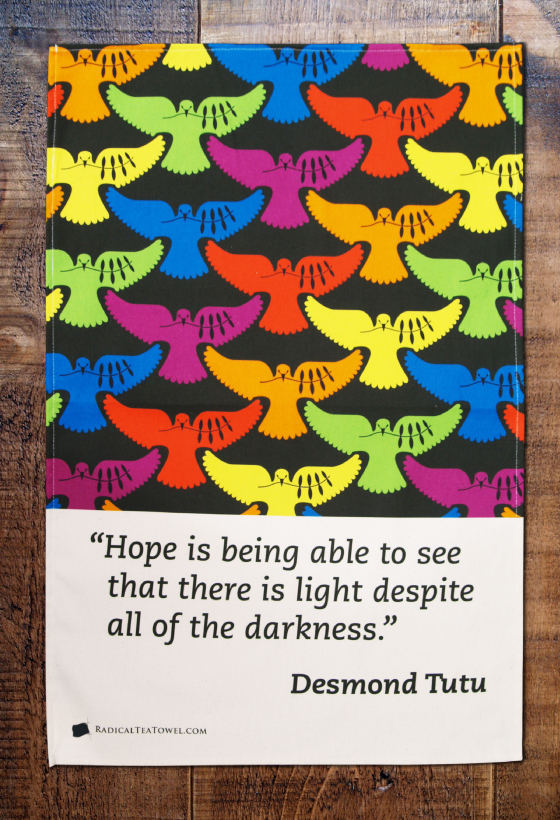Down With Afrikaans: The Story of the Soweto Uprising
Posted by Pete on 16th Jun 2018
On this day in 1976, the schools of Soweto were empty.
It wasn't a weekend or a bank holiday. The black students of the township in southern Johannesburg were on strike.
A few weeks earlier, South Africa's Apartheid government had declared that from now on half of core subjects would be taught in Afrikaans. The white authorities were worried about its declining use relative to English among the black population and so moved to reverse the trend through education policy.
Students in Soweto were having none of it.
A peaceful protest against the language of the oppressor
On 30th April, Orlando West Junior School went on a protest strike and the walk-out spread rapidly across the township's youth.
They carried placards with phrases like 'Down with Afrikaans' and 'If we must do Afrikaans, Vorster [then President of South Africa] must do Zulu.'
The extra workload of studying in Afrikaans wasn't the protesters' main beef. Their target was the specific language that was being imposed on them.
Afrikaans was what Desmond Tutu called "the language of the oppressor." It was the mother tongue of the Boer whites, who for a century had brutalised the black majority in South Africa and now enforced a racialist Apartheid which kept it impoverished and disenfranchised.

That's why they went on strike in 1976.
Soon enough, the strikers began to organise this anger into effective political action. On 13th June, a Soweto Students' Representative Council was established which quickly organised a peaceful protest to be held three days later.
On the 16th June 1976, near-20,000 students began to march through the township in a remarkable display of courage. They were demanding the government back down on its new education policy.
But the government was busy doing something else, the only thing the regime knew how to do in such situations - violently oppressing its black subjects.
A massacre in Soweto
Despite the impressive discipline with which the march leaders had kept things peaceful, the white police set attack dogs on the protesters. In self-defence, one of these dogs was killed - and the response of the white officers was to open fire on the crowd with live ammunition.
By the end of the day, 23 people had been killed - the vast majority of them unarmed kids shot by South African police.
For the life of me I do not understand how the Apartheid government thought this murderous response would end their troubles rather than make things ten times worse.
There were solidarity actions across South Africa - student protests (including even whites at the University of Witwatersrand) and labour strikes - often met by yet more police violence. By the end of 1976, the body count from growing civil discord had passed 600.
In the rest of the world, the images that came out of the 'Soweto Uprising' turned up the pressure on the Apartheid regime.
One photo in particular showed a dying 13-year-old, Hector Pieterson, being carried away from police gunfire by a friend and his little sister. A world not used to South African state violence was horrified.
A global response to bring down Apartheid
The UN Security Council quickly passed a unanimous resolution condemning Apartheid. Many states increased or introduced economic sanctions on South Africa, and the global movement to Boycott Apartheid - the movement which would ultimately bring it to its knees - was turbocharged.
Not unlike the Easter Uprising in Ireland sixty years earlier, the state brutality visited upon the Soweto rebels came back to bite the brutes who perpetrated it. Some have even called 16th June 1976 'the day Apartheid died'.
Nelson Mandela certainly appreciated its significance. Speaking just two days after his release in February 1990, the future President of a free South Africa saluted the youth of Soweto and its rising, remembering how he and his ANC comrades "gained inspiration from their courage and conviction during our lonely years in prison."
We can continue to take inspiration from them as well. Though South African Apartheid has been destroyed, there remains colonialism in our world, and Soweto remains a shining example of how to come together and defeat it.
The students of Soweto didn't want to be made to speak the same language Afrikaners used to racially abuse them in the streets of Johannesburg. It would be yet more salt in the wound that colonialism had inflicted on them and their families.
